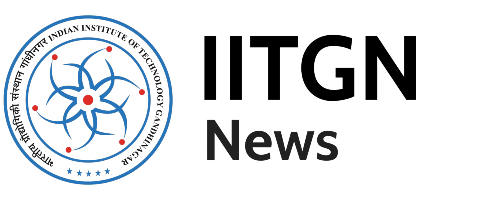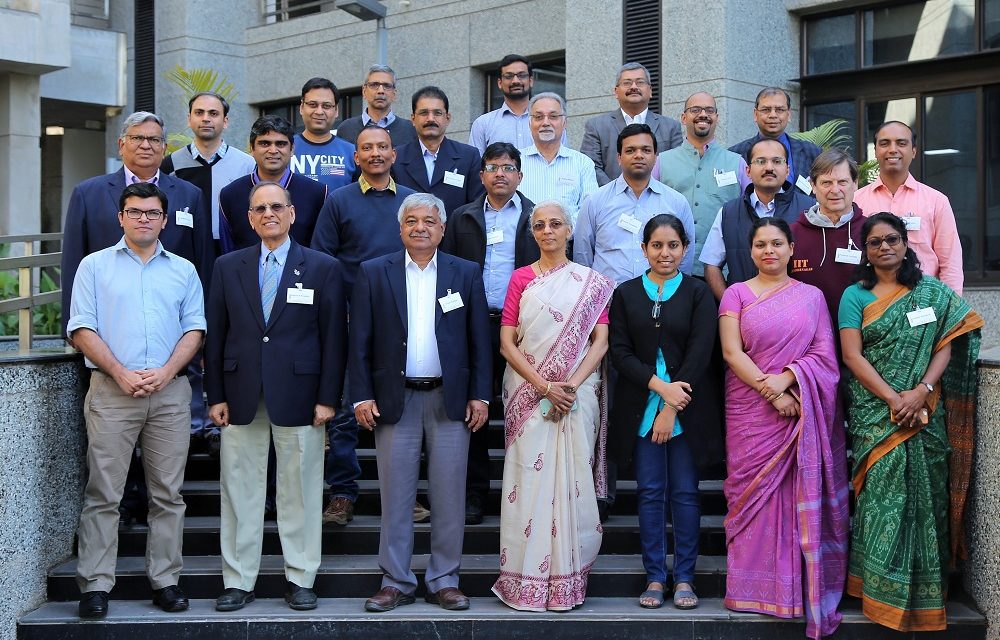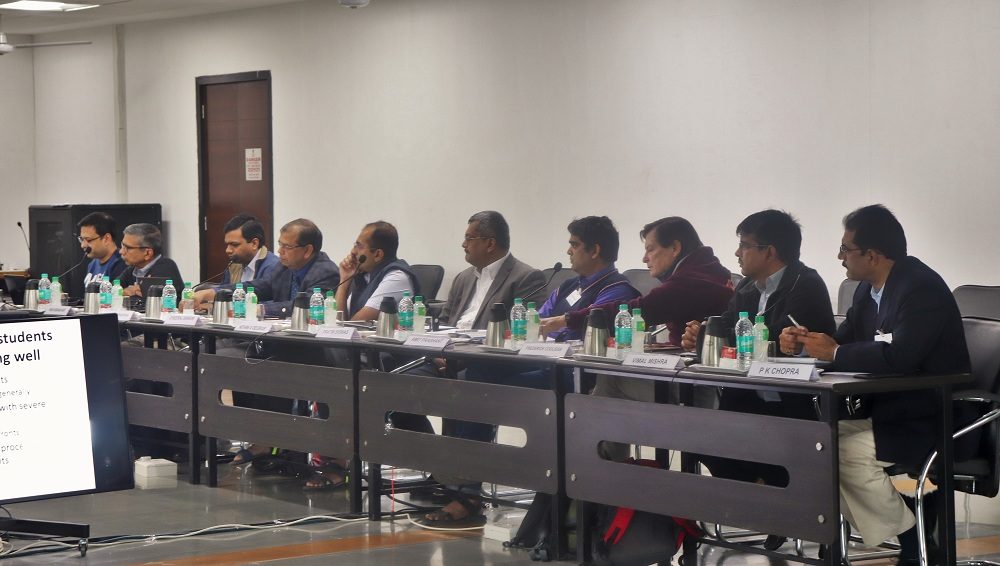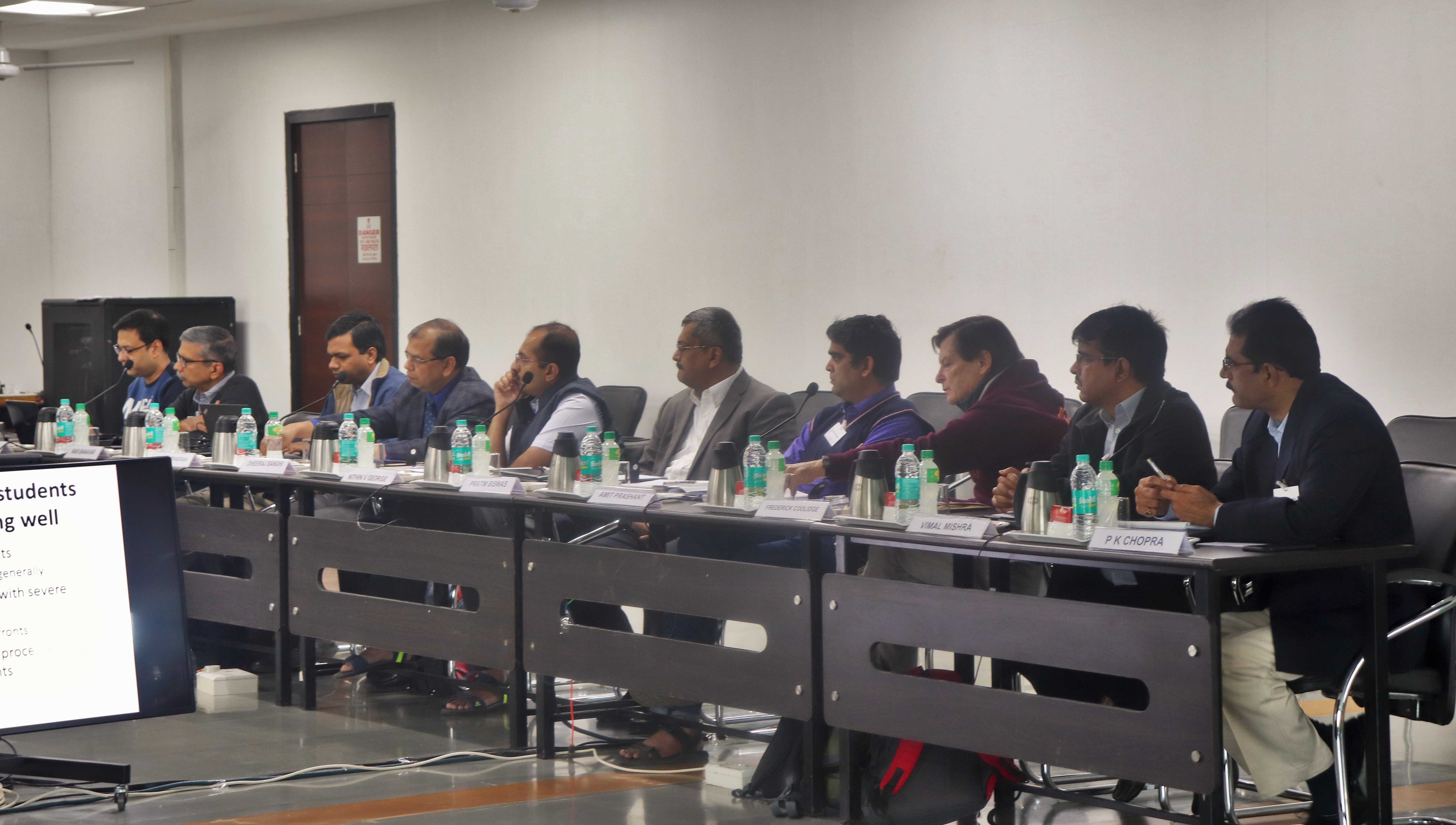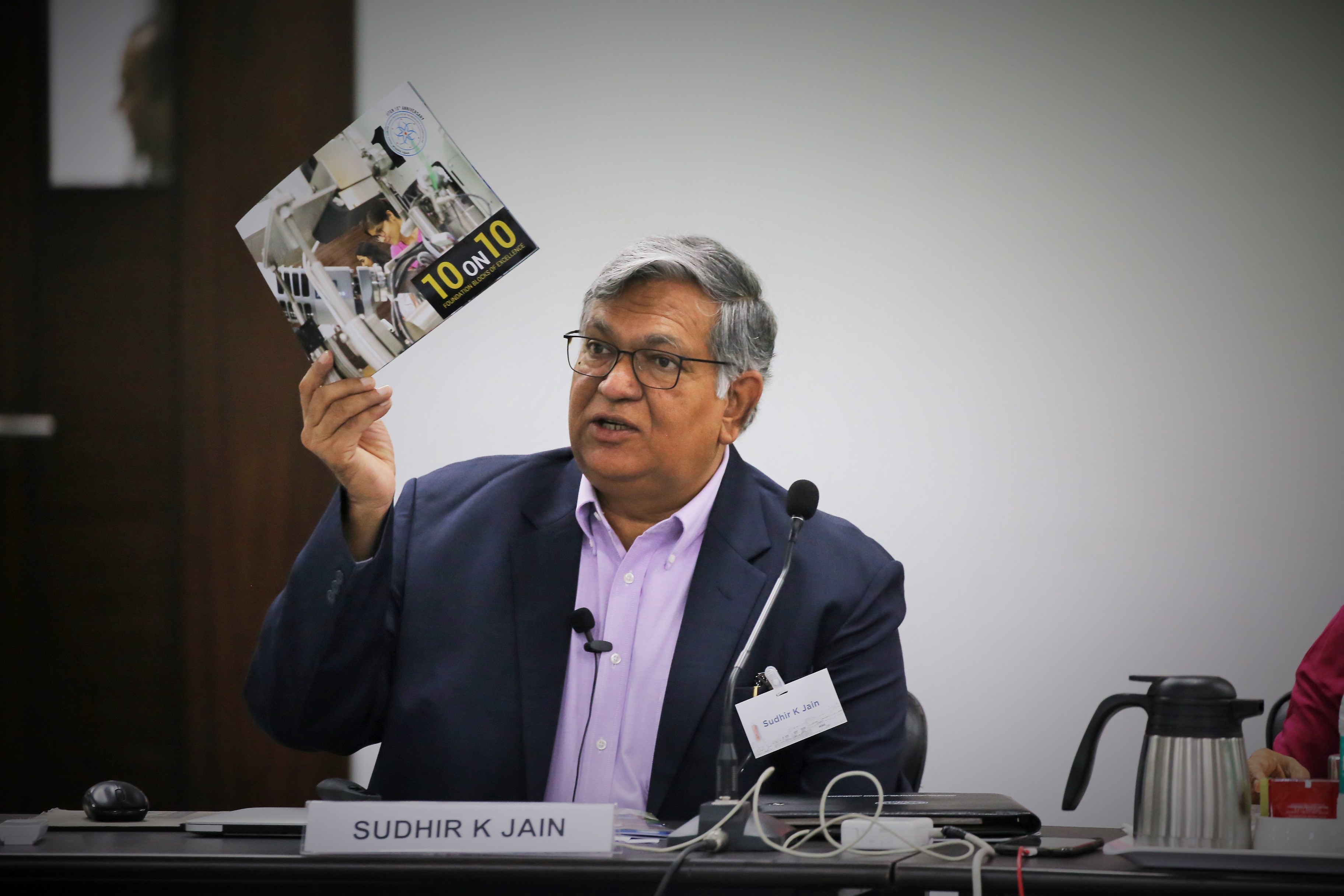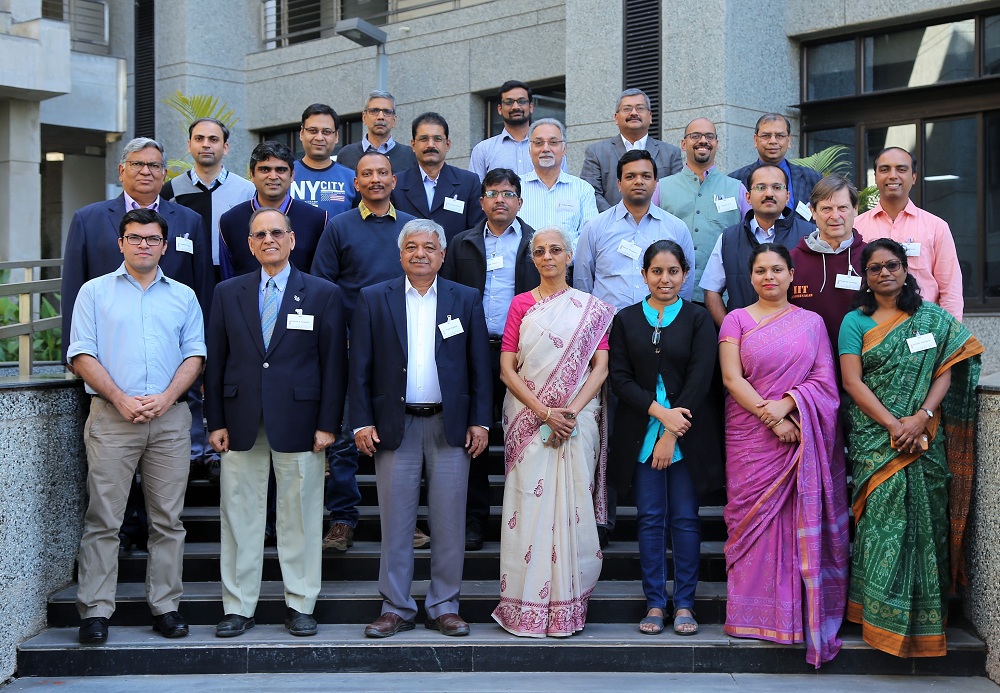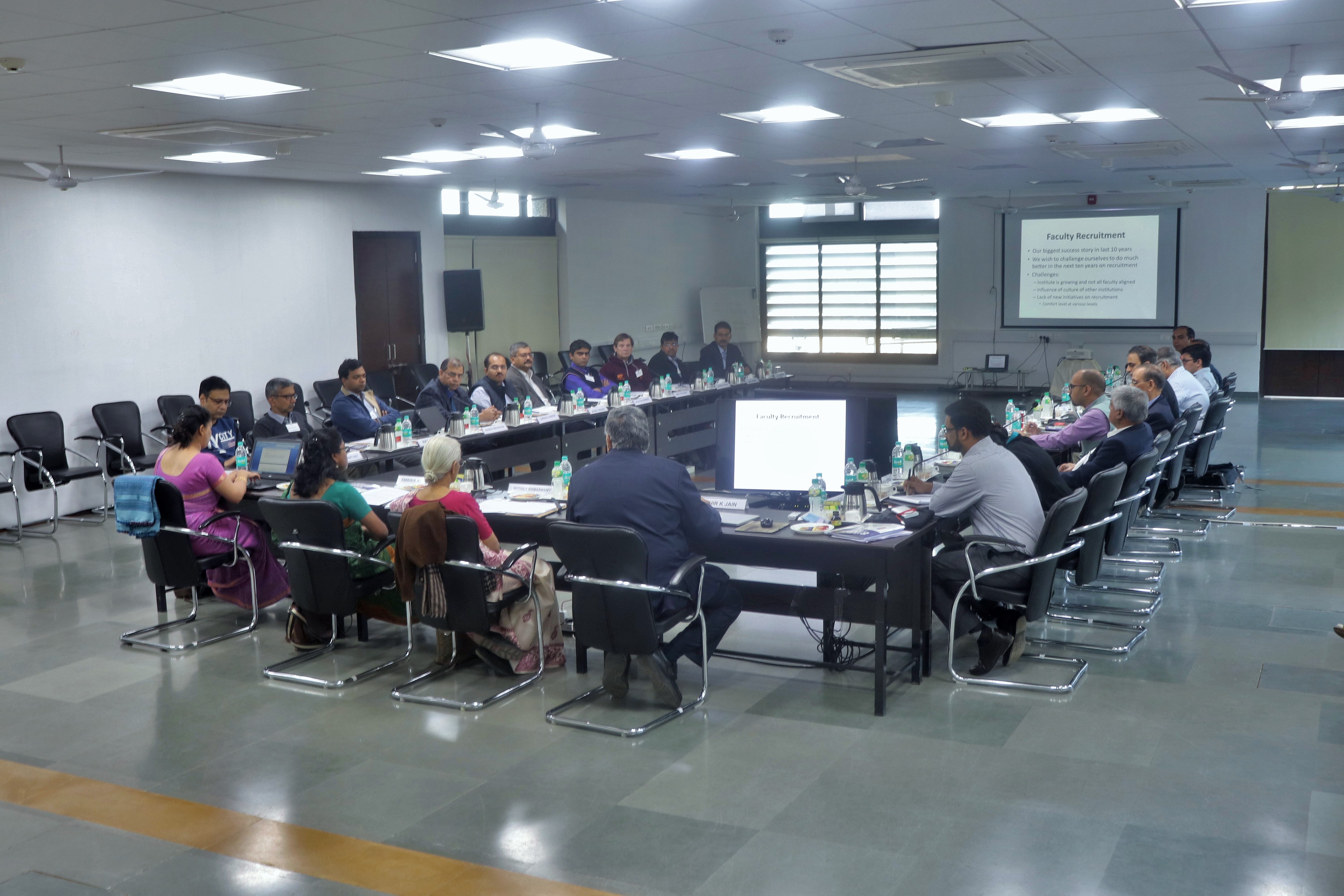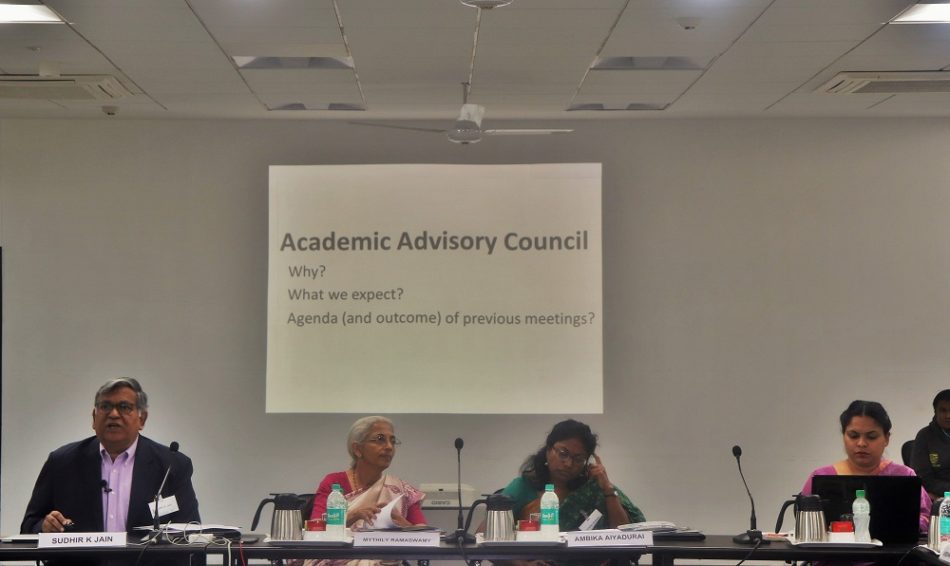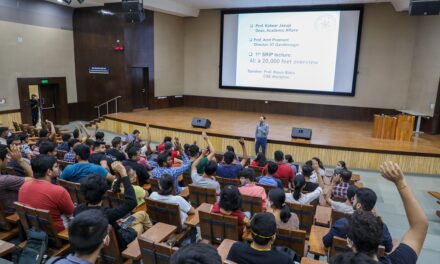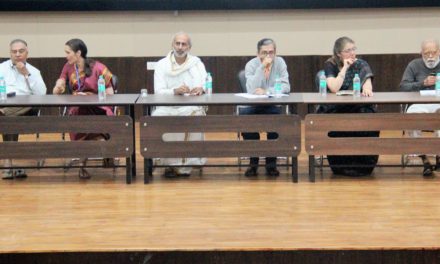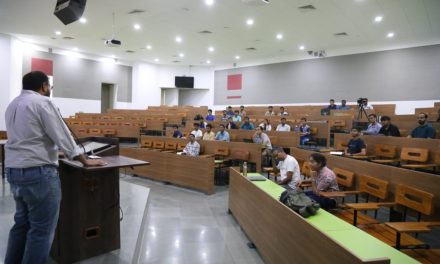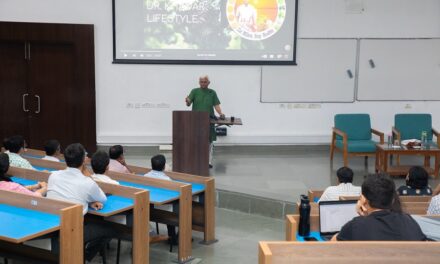The Eighth Academic Advisory Council (AAC) meeting of IITGN was held today with distinguished external academicians from India and overseas as well as faculty members of IITGN. The AAC of IITGN meets every year to discuss issues of academic priority at IITGN.
Today’s meeting saw some very intense and fruitful discussions on key focus areas of strategic importance for IITGN as the institute completed a decade of establishment. In the morning, Prof Sudhir K Jain, director, IITGN welcomed all the council participants and briefly summarised the topics discussed during the past seven meetings. He also presented the background behind the four topics of discussion on the agenda for the current AAC and put the forum open for discussion.
- The possibility of lateral entry into its BTech programme
- Ways to support students who are academically lagging
- Faculty recruitment
- Curriculum review
The first topic of discussion was to think about the possibility of lateral entry of students into IITGN’s BTech programme. The participants discussed various aspects of the matter and felt there were plenty of untapped opportunities for lateral entry of students with various backgrounds that could be mutually beneficial to IITGN and other institutions. The details of such possibilities may be deliberated further. The council also felt there were plenty of opportunities to leverage IITGN’s non-degree programme to involve students and others.
Next, the participants discussed solutions to support students who are academically lagging. They debated on the current support mechanisms such as counselling, peer-assisted learning (PAL) and lacunae in it, socio-cultural factors that affect a student’s performance and motivation, and need for tailormade strategies to support each student who faces challenges on academic and non-academic fronts. They also emphasised the idea of learning-by-doing combined with grouping diverse students to provide peer support from within the group itself. The council members also shared their experiential inputs on parental interventions.
The topic of faculty recruitment was also discussed at length with the focus on how to do much better in the next 10 years. The internal and external challenges in this area were also deliberated upon and the council members gave various suggestions to attract the best of the faculty to IITGN. The council also pondered over the feasibility of curriculum review for IITGN at this stage which already has the distinction of setting up its own curriculum different from other IITs, which provides room for flexibility, diversity, broadness, and depth. The members agreed to bring student-centric innovative elements, skills into the curriculum keeping in mind lifelong learning for them. The members discussed how the different skills and element of social engagement can be embedded into different main courses.
The eight meeting had leading academicians from Washington University, University of Colorado, University of Washington, State University of New York, IIT Kanpur, IIT Bombay, Tata Institute of Fundamental Research and Jawaharlal Nehru Centre for Advanced Scientific Research who provided their valuable and strategic inputs.
